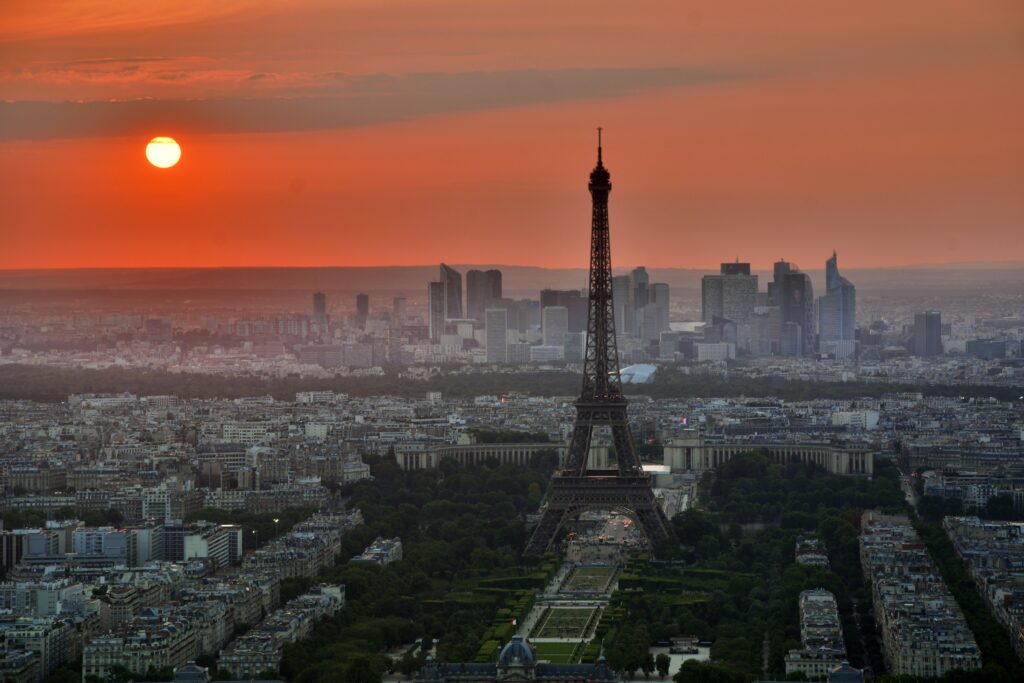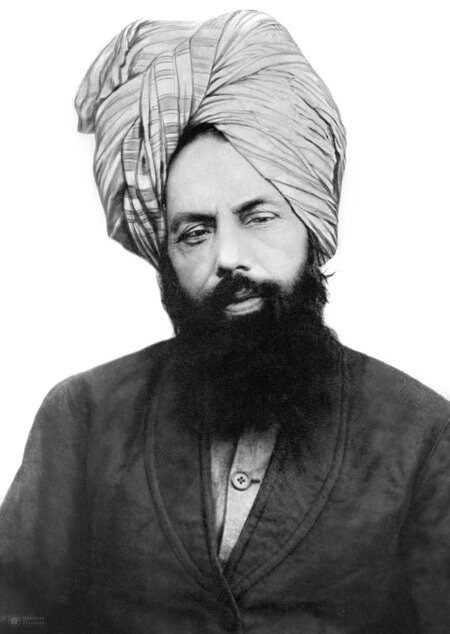The new liberal (or illiberal – we’ll let the readers decide) laws passed by French President Emmanuel Macron, blatantly targeting Muslims, unveil the very real far-right sentiments brewing in Europe.
Separatist laws, which give birth to further “separatism” and alienate Muslims who make up 8.8% (5.7 million) of the population of France, have been guised as secularism – or as the French say, Laïcité.
France has been a key player in the passage of laws restraining the rights and freedoms of Muslims, a prime example of which is the veil and burka bans.
This is ironic, as secularism requires religion to be separated from the rule of law, but still ensures the free practice of religion, not its policing.

In recent “secular” moves, the French government has warned of fines for people who ask to be seen by a doctor of the opposite sex (clearly targeted at Muslims) and France’s Interior Minister, Gerald Darmanin said that foreign parents could be deported if they complain about their children being shown insensitive cartoons – the irony of deporting people who express an opinion using the justification of protecting free speech has saw wide condemnation on social media.
This aggressive process of turning Muslims into the “dangerous outsider” and forcing Muslims to bow to France’s version of “secularism” brings back haunting memories of the Cult of Reason that plagued France following the Revolution.
As Olivier Roy, a French political scientist and professor at the European University Institute in Florence, put it, “Policies like these have only made the situation worse, as they stigmatise Muslims. Muslim communities are crippled by the burden and stymied in their hopes for a culturally and socially integrated Islam in France. They are placed, as it were, under what amounts to permanent government supervision.” (www.middleeasteye.net/news/france-islam-olivier-roy-authorities-failure-radicalisation)
Rightly, countless articles have been published condemning Macron and his double standards – especially on free speech. Due to France’s influence, some of these critical articles have even been pulled, of which the Financial Times and Politico are prime examples.
Of course, historically, scapegoating takes place especially when governments want to distract the public from their own failures and put the blame on “the other” – analysts have highlighted the failure of France’s economy and the need to secure votes from populists in explaining Macron’s desire to go after Muslims.
The marginalisation of Muslims in the West is not unique to France. Far-right, anti-Muslim and anti-immigration parties and sentiments over recent years have seen unprecedented support. Populist political parties – who have a common theme against Muslims – now see huge political support; in Germany, “AfD has become the biggest opposition party in the Bundestag”; in Spain, Vox became “the third largest force in parliament”; in Austria, “The Freedom Party (FPÖ) became the only far-right party in power in Western Europe” and in Sweden, the “anti-immigration Sweden Democrats (SD) made significant gains in the 2018 general election, winning about 18% of the vote”. (www.bbc.co.uk/news/world-europe-36130006)
Now, even centrist, conservative and other parties have jumped on the bandwagon of criminalising Muslims; France and America are key examples. Negative comments and bigotry against Muslims – clearly to cause a reaction or gain support – have become a casual acceptance in the West.
Those who push these narratives, capitalise on terrorist attacks committed by so-called Muslims and create an “us versus them” scenario while ignoring the vast majority of Muslims who have continuously condemned such atrocious attacks. It is well known that Charlie Hebdo’s readership was suffocating prior to the cartoons.
However, the attacks on their central office gave the magazine a new life and readership rocketed. The cartoons of Prophet Muhammadsa were not about freedom of speech (Charlie Hebdo did not allow anti-Semitic cartoons to be published), but were clearly published to provoke and instigate a reaction from Muslims; it worked.
Nevertheless, as Arsalan Iftikhar, a human rights lawyer noted in Scapegoats: How Islamophobia Helps Our Enemies and Threatens Our Freedoms, puts it, “Dangerous demagogues throughout history have sought to reinforce their rule by frightening the public and creating scapegoats on whom to focus their fears and resentments. The Catholic and Jewish scapegoats of an earlier era have become the Muslim scapegoats of today. There is no more logic for this demonization of Muslims today than there was for innocent Jewish people in Nazi Germany or African Americans in the Jim Crow South …” (Scapegoats, p. 23)
The scapegoating, policing and marginalisation of Muslims in the West has been counterproductive in battling extremists. The constant harassment of Muslims has been an effective tool used by extremist groups in recruiting disenfranchised Muslim youth, as we saw during the rise of Daesh. The rational and religious solution to this fiasco is dialogue, education and democratically addressing the vile narratives pushed not just in France, but the West in general.
However, for this, Muslims must unite and speak as one body. The disunity of Muslims, as Hazrat Khalifatul Masih Vaa puts it, gives courage to such people in attacking Islam and its Prophetsa. Many Muslims, in emotional and defeatist reactions, will reject any role and responsibility they have to play in countering the narrative. This is not rational. For effective change, dialogue, debate and pressure from a unified Muslim Ummah needs to take place. Emotionally reacting through boycotts, attacking embassies and even holding public demonstrations will not expel anti-Muslim narratives pushed by politicians and the media.

Over 100 years ago, when the anti-Muslim inflammatory book, Umahat-ul-Momineen was published in India, Muslims responded by demanding the British government to outright ban the book. Hazrat Mirza Ghulam Ahmadas opposed this demand by the majority of Muslims as it would be an empty response and bring no effective change in countering the narrative. Conversely, he told Muslims to respond to the allegations with arguments and push back at the vile insinuations made in Umahat-ul-Momineen.
Sadly, Muslims did not heed this advice and as a result, anti-Muslim conflicts continued in India. It seems that ever since, Muslims have been in a defeatist mindset. Recently, Shaykh Abdal Hakim Murad, a renowned Muslim scholar and dean of the Cambridge Muslim College, said how the best theological response to anti-Muslim sentiments would be to “repel [evil] with that which is best”, as the Quran instructs. (Surah Ha Mim al-Sajdah, Ch.41: V.35) and not to simply make complaints and be reactionary. Shaykh Murad’s comments received mostly negative reactions, but many thoughtful Muslims strongly supported his view.
To “repel [evil] with that which is best” is exactly what the Ahmadiyya Muslim Community has been doing for well over a century, perfect case examples of which have been the response to Umahat-ul-Momineen, Rangila Rasool, Vartman, Satanic Verses, the Danish cartoons and Pope Benedict quoting 14th-century Christian emperor as saying that Prophet Muhammadsa introduced only “evil and inhuman” ideas.
The reality is that the Messiah was to come as the saviour for Muslims; clear prophecies of Prophet Muhammadsa detail this role. Unfortunately, Hazrat Mirza Ghulam Ahmadas continues to be rejected as the Promised Messiah by mainstream clerics, Muslim leaders and the Ummah at large. Muslims are clearly subjugated by Western nations and are far from being united themselves, both internationally and domestically.
There is, however, solace for Muslims. The Ahmadiyya Muslim Community, who invites the Ummah to the Imam of the age, is now blessed with the guidance of Khilafat. Ahmadi Muslims don’t just face the wider Muslim bigotry in the West, but face horrific persecution at the hands of other Muslims too. Through the enlightening teachings of Islam, which the Messiahas and his Khulafa revived, Ahmadis repel the countless evils they face with “that which is best”. Unless Muslims open their eyes and accept the Imam of the age, the future, unfortunately, will be bleak for the Ummah. It is a shame that Muslims do not look at the clear prophecies made for the revival of Islam and recognise that they have been fulfilled. Until then, the wider Ummah will remain like sheep without a shepherd – the perfect prey for wolves.


Mashallah, a good, well drafted document that draws attention to the current status of Muslims, their treatment by others and their lack of understanding of the truth. May Allahtaala, the most gracious and the most merciful, guide the Muslims to accept the Promised Mesiah (AS) and the non-Muslims to see the truth and accept the reformer of the age, Ameen.